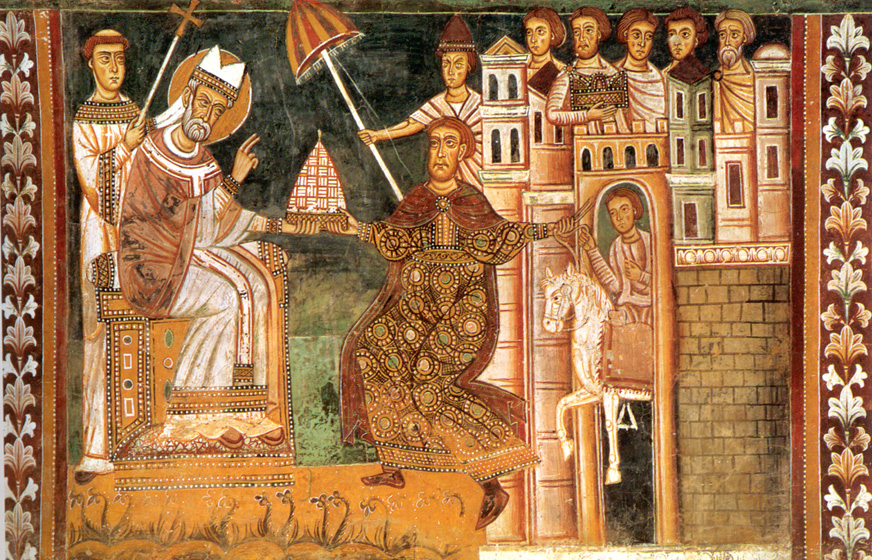Why do Germans call New Year’s Eve ‘Silvester’? Posted by Constanze on Dec 29, 2017 in Culture, Holidays, Language, Traditions
Guten Tag! I hope you all had Frohe Weihnachten (Merry Christmas), that you got to spend time with your Familie (family) and open lots of wonderful Geschenke (presents)! Now there are only a few days left until New Year’s Eve and 2018. If you want to learn about German Christmas and New Year’s customs then you’ll find a whole range of posts on the subjects right here on the blog! Today I shall add to those posts by answering a question some of you may have asked yourselves: Why is New Year’s Eve called Silvester in German?
New Year in German is Neujahr. New Year’s Day in German is Neujahrstag. So why is New Year’s Eve called Silvester? The answer is actually rather simple and lies in religion.
Silvester, the German NYE, was named after Pope Silvester I, who served as Pope of the western Church from 314 up until his death on December 31st 355. Therefore, December 31st became his Catholic remembrance day – a day which involved lots of feasting! Naturally, the meaning of and celebrations behind Silvester changed over time, but the name remains the same.

Pope Silvester I. By Unknown medieval artist in Rome – Unknown, Public Domain, Link
Other German-speaking countries also call NYE Silvester. In Switzerland, they even have what’s known as a Silvesterklaus – a New Year’s Mummer! This is a masked person who goes from door to door wishing people a happy new year. I’ll be writing a full post about the Silvesterklaus very soon!
In some regions, the day of Silvester is also called Altjahrstag (or Altjahrestag), meaning Old Year’s Day.
Please note, you will sometimes see this name spelled Silvester and sometimes Sylvester.
Remaining on the subject of language, here are a couple of other things you say at German new year which may have you wondering about their word origins:
“Einen guten Rutsch ins neue Jahr”
This phrase literally means A good slide into the new year. Although this in itself makes perfect sense, it is possible that the word Rutsch (slide) actually comes from the Yiddish word Rosh, from Rosh Hashanah. To say Guten Rosh in Yiddish means to wish someone a good beginning, like at the start of a new year. The good thing is that both of these meanings make sense, so interpret this phrase how you will!
“Prosit Neujahr”
Prosit Neujahr is basically how the Germans say Cheers to the new year. The word Prosit is Latin in origin and means May it succeed. So by saying Prosit Neujahr, you’re wishing for a successful new year ahead.
I hope you’ve enjoyed this post. If you’d like to read more about New Year’s traditions in Germany, click through to this post. On behalf of Sten, Larissa & myself I’d like to say danke for all of your support and hard work in 2017! So now all that’s left to say is ….
Einen guten Rutsch ins neue Jahr! 🙂

Build vocabulary, practice pronunciation, and more with Transparent Language Online. Available anytime, anywhere, on any device.






Comments:
Carol Alderson:
Hi Constanze
Just wanted to say thank you “Danke schön” for this great blog post!
It’s very useful to read your posts.
So, I wish you “einen guten Rutsch”!
Aleksandra:
Hi, Please keep up with good posts for Germany or the German language. I am learning the language and enjoy reading your blog. So fresh and simple 😀